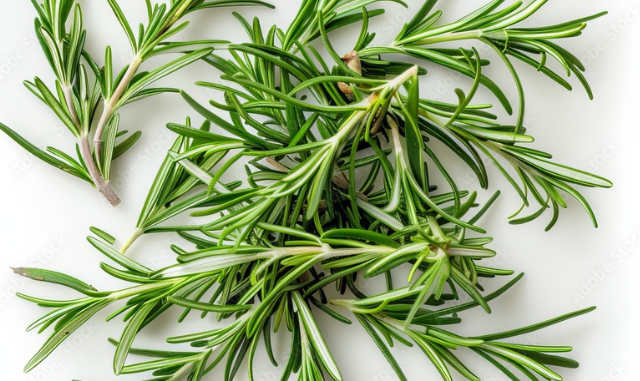
Rosemary Medicinal Properties
Fresh Rosemary is an evergreen plant (Salvia rosmarinus) of the mint family Lamiaceae. Rosemary leaves have been used in folk medicine for centuries for its medicinal properties. It has a bitter herbal taste and can be used in many ways including flavoring of foods, tea, essential oils, and extracts. “Rosemary has significant antimicrobial anti-inflammatory, antioxidant, anti-apoptotic, anti-tumorigenic, and neuroprotective properties. Furthermore it shows important clinical effects on mood, memory, learning, memory, pain, anxiety and sleep.”NIH It is an evergreen shrub native to the Mediterranean region that includes southern Europe, Asia Minor, and north Africa and is best suited for its sunny, warm, dry climates. Rosemary can also be grown in colder climates but can’t tolerate water logging or severe cold temperatures.
Native to the Mediterranean region, rosemary has naturalized throughout much of Europe and widely grown in gardens in warmer climates. The leaves have a slightly bitter, pungent taste that can be used dried or fresh typically to season popular dishes especially chicken, duck, lamb, sausages, stews, seafood, stuffing, turnips, tomatoes, potatoes, soups and other vegetables as well as beverages. Rosemary can add a piney aroma and herbal allure to infused simple syrup. It is a member of the mint family and pairs well with sweet and acidic flavors like citrus cranberry tomato and fresh apple. Make a low calorie simple syrup for beverages steeping a few sprigs of rosemary in 1.5 cups of boiling water for 10 minutes combined with 1 tablespoon Truvia no calorie sweetener. Allow the infusion to cool to room temperature then refrigerate. Use the rosemary simple syrup in hot or cold beverages tea, lemon & rosemary cocktails, or sorbet dessert.
Rosemary is a perennial shrub that usually grows about (3.3 feet) 1 meter in height although some rosemary plants reach up to( 6.6) 2 meters feet tall. The liner leaves are about 1 cm (o.4) inches, long and somewhat resemble small curved pine needles. Historically in ancient times rosemary was believed to strengthen memory. Rosemary is scientifically known as Rosmarinus officinalis and has been associated with potential cognitive benefits. “ Rosemary Rosmarinus offcinalls L.(Labiatae) has been used in folk medicine to alleviate several diseases including headache, dysmenorrhea, stomachache, epilepsy, rheumatic pain, spasms, nervous agitation, improvement in memory, hysteria, depression, as well as physical and mental fatigue.” NIH. Nature Restore Rosemary supplements standardized to 20 percent carnosic acid, 380 mg per capsule, 90 capsules per bottle 1-2 month supply, manufactured in the USA, Non- GMO, Gluten free supplement.
Herbs amazing health benefits boost immunity packed with nutrition including protective combinations of polyphenols plant compounds with potent anti-inflammatory properties mainly used for cooking and medicinal purposes. Rosemary active antioxidant carnosic acid has shown in research to support your body with optimal health. “Herbal medications and natural products were used in ancient therapies. During the last two decades researchers focused on more herbs during discovery because of their limited side effects and fewer complications.” NIH Rosemary extracts from BOTANIC Choice 4:1 Extract supplement is processed to capture the essence of rosemary formulated to be alcohol free. Historically rosemary is significantly known as “dew of the sea” and has been a traditional favorite for centuries especially for its wide range of health benefits.
Cheers!
Patricia Lynn
Images Courtesy of Alex at AdobeStock